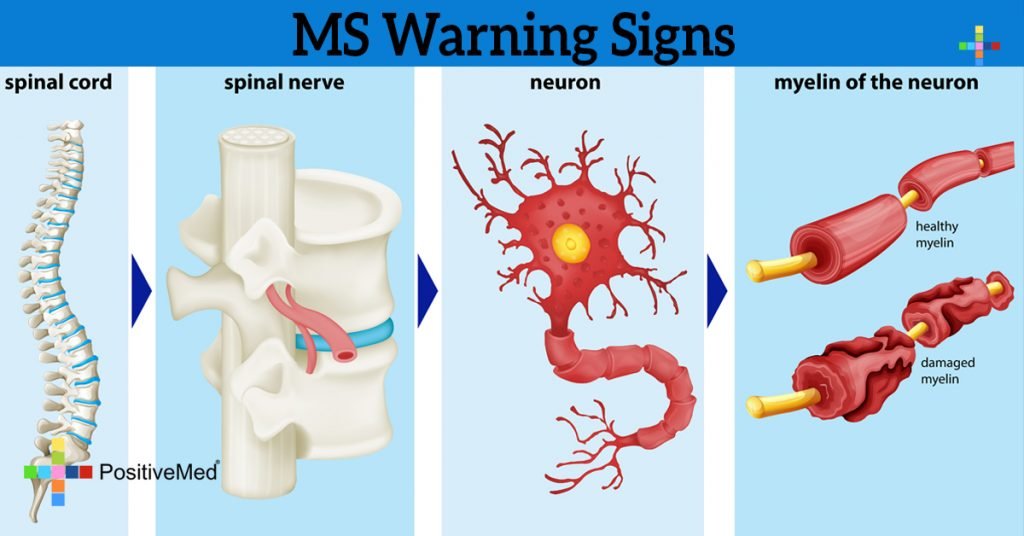
MS Warning Signs
MS is a chronic disease that damages the nerves in the spinal cord and brain, as well as the optic nerves. Sclerosis means scarring, and people with MS develop multiple areas of scar tissue in response to the nerve damage. Depending on where the damage occurs, symptoms may include problems with muscle control, balance, vision, or speech.
MS Symptoms
Nerve damage can cause:
Weakness in an arm or leg
Numbness
Loss of balance
Muscle spasms
These symptoms may lead to frequent tripping or difficulty walking.
More than half of people with MS experience a vision problem called optic neuritis. This inflammation of the optic nerve may cause blurred vision, loss of color vision, eye pain, or blindness, usually in one eye. The problem is usually temporary and tends to improve within a few weeks. In many cases, vision problems are the first sign of MS.
Although less common than vision problems, some people with MS develop slurred speech. This happens when MS damages the nerves that carry speech signals from the brain. Some people also have trouble swallowing.
MS can take a toll on mental sharpness. Some people may find it takes longer to solve problems, others may have mild memory loss or trouble concentrating. Most people with MS also experience some loss of bladder control, because signals between the brain and bladder are interrupted. Finally, fatigue is a common problem, you may feel tired even after a good night’s sleep.
As confusion, slurred speech, and muscle weakness can be symptoms of MS, they can also be signs of a stroke. Anyone who suddenly has trouble speaking or moving their limbs should be taken to the ER immediately. Treating a stroke within the first few hours provides the best odds of a successful recovery.
In people with MS, the body’s own immune system attacks the tissue surrounding the nerve fibers in the brain, spinal cord, and optic nerves. This covering is made of a fatty substance called myelin. It insulates the nerves and helps them send electrical signals that control movement, speech, and other functions. When myelin is destroyed, scar tissue forms, and nerve messages are not transmitted properly.
The roots of MS remain mysterious, but doctors note some surprising trends. It’s most common in regions far from the equator, including Scandinavia and other parts of Northern Europe. These areas get less sunlight, so some researchers believe that vitamin D (the “sunshine vitamin”) may be involved. Research suggests a possible link between vitamin D deficiency and autoimmune disorders, but studies are ongoing. Genetics appear to play a role, as well.
MS is at least twice as common in women as it is in men. While it can strike people of any race, Caucasians appear to be most at risk. The chances of developing the condition are highest between ages 20 and 50. If you have these symptoms, talk to your doctor.





